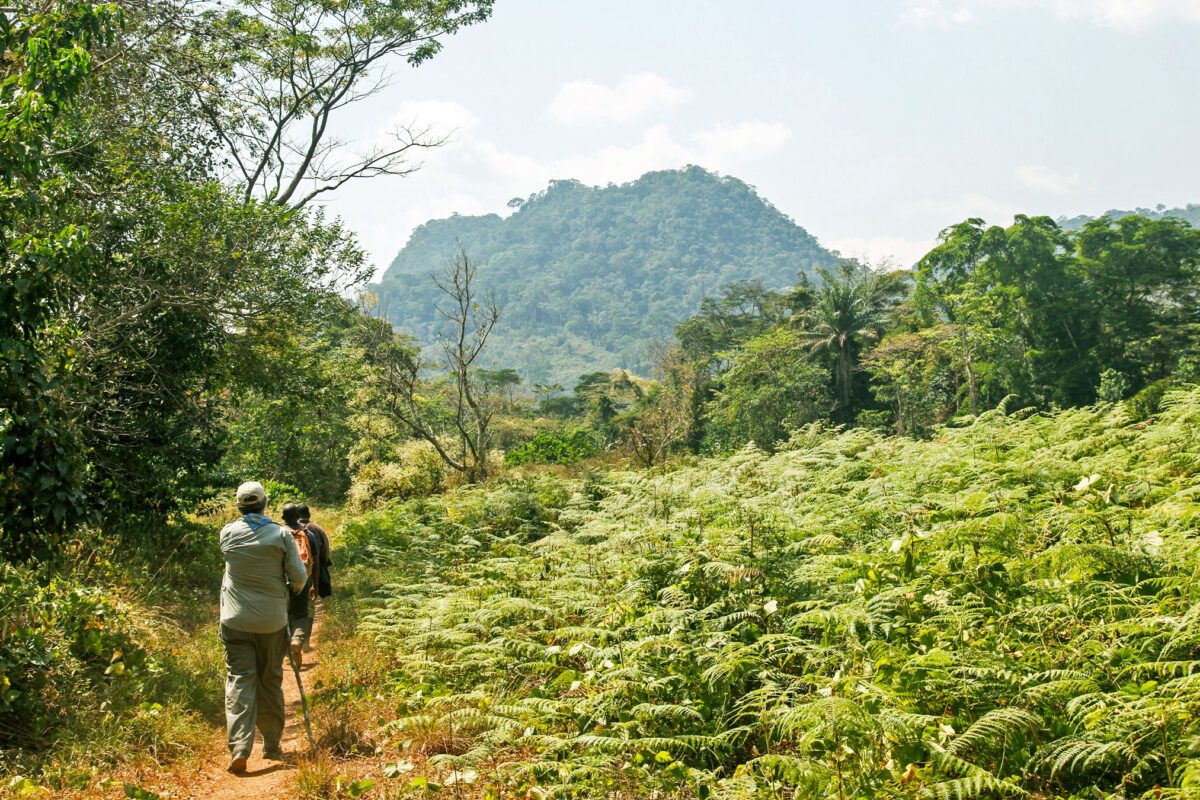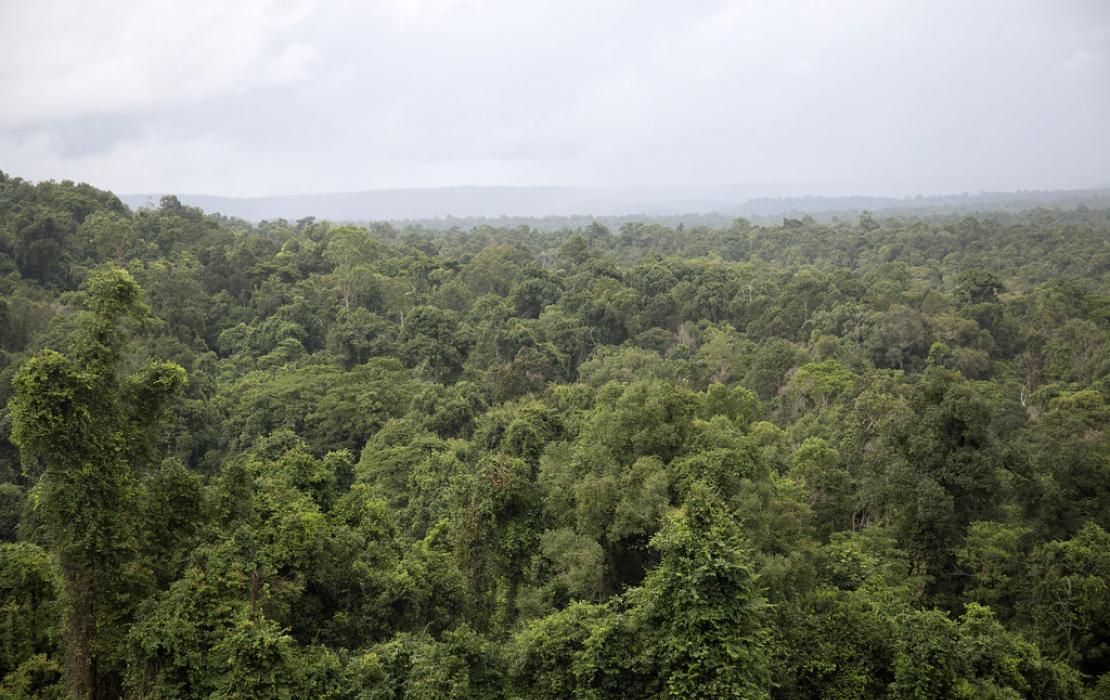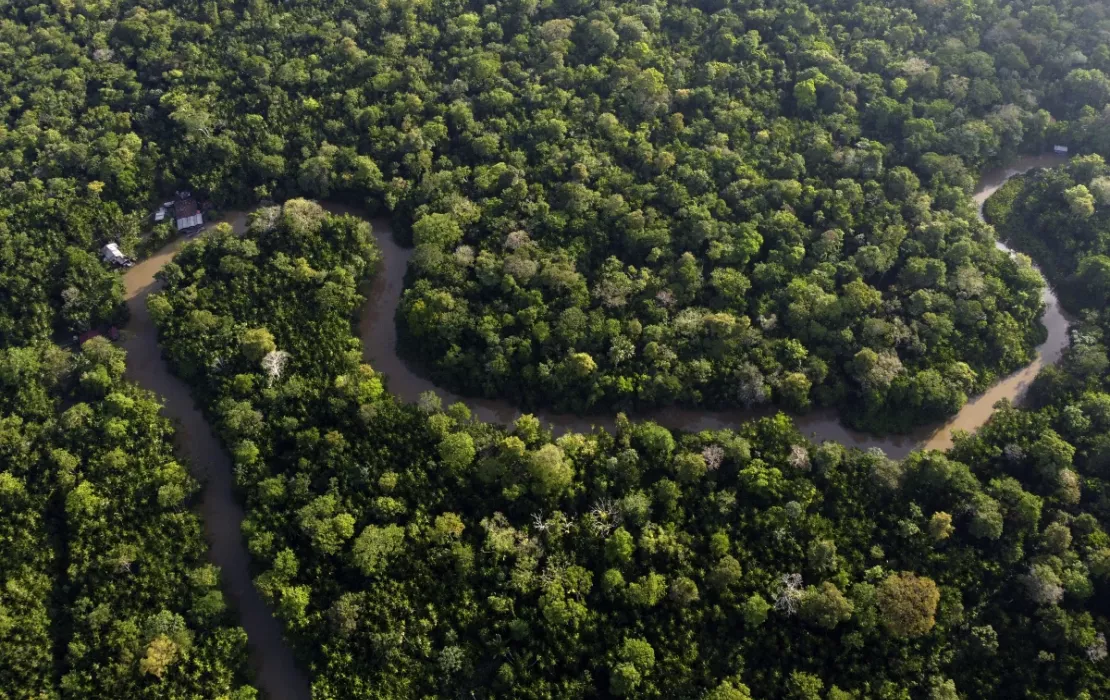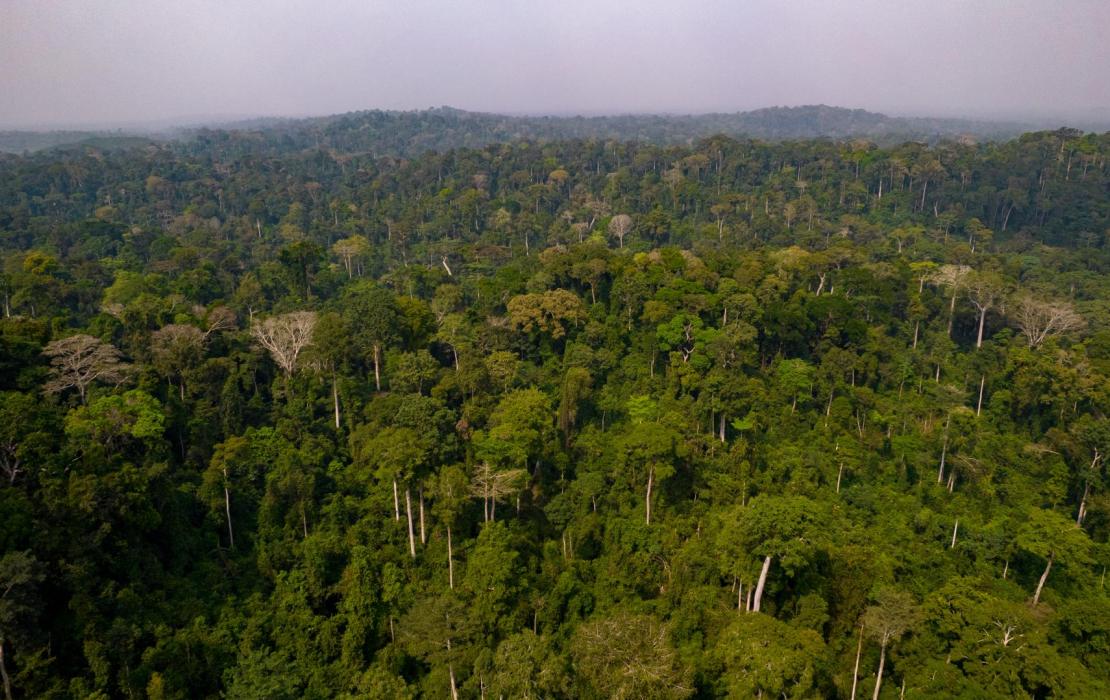
Photo: Terry Sunderland / CIFOR
Liberia’s dense forests cover nearly 70 percent of the country, serving as a lifeline for countless Liberians, especially in rural communities where forests provide essential resources for daily life. Approximately half of Liberia's population lives within 2.5 kilometers of a forest and earns, on average, 35 percent of their income from trading forest products.
Commercial activities in Liberia's forests play a vital role in the economy. Women, in particular, depend on forests for subsistence by collecting fuelwood and medicinal plants, while men more often engage in timber extraction. The forestry sector employs tens of thousands of people, both formally and informally.
Beyond their immediate value to local livelihoods, these forests play a crucial role in the global climate: they act as significant carbon sinks, helping to capture carbon and slow the pace of climate change. Across Africa, carbon markets are gaining traction as a powerful tool for forest protection and climate change mitigation. For Liberia, participating in carbon markets presents a valuable opportunity to generate income from forest conservation efforts while safeguarding critical ecosystems. Recognizing this potential, Liberia’s Forest Development Authority established a dedicated office to manage and advance the country’s involvement in carbon markets, marking an important step in its environmental strategy.
To support Liberia's ambition, UNDP recently hosted a development dialogue, Making carbon markets work for forest communities in Liberia, bringing together influential actors and partners to shape an inclusive national framework for high-integrity carbon markets. The dialogue highlighted collaborative steps essential for building policies and partnerships that truly benefit forest communities.
Here are four key takeaways from the discussion on shaping policy directions and fostering partnerships for carbon markets in Liberia.
1. Establishing legal frameworks for forest ownership and fair benefit-sharing
Establishing legal frameworks that clearly define forest ownership and benefit-sharing is essential as Liberia develops its carbon markets. The Environment Protection Authority (EPA) could take the lead in this effort, with support from the Forest Development Authority. A key focus is determining how carbon rights will be allocated and benefits shared among stakeholders, ensuring equitable distribution, particularly for local communities managing community forests.
The Statute on Community Forests and the Land Rights Act grant important rights to land and forest resources, but clarity is needed on how these rights extend to carbon. It must be determined whether carbon is a forest resource or classified as a mineral under state jurisdiction, which affects claims to emission reductions.
The National Climate Change Steering Committee has tasked the EPA with leading a technical working group to develop a comprehensive legal framework for carbon markets, building on previous UNDP work and research from partners like the World Bank. This initiative aims to create a robust structure that supports sustainable carbon market development while ensuring environmental integrity and social inclusion.
2. Empowering local communities in carbon markets
Ensuring that carbon market projects respect and empower local communities is crucial. These initiatives must prioritize the cultural values and governance systems of local populations, rather than being solely driven by the interests of buyers. When projects focus too heavily on market demands, there is a risk of marginalizing community interests and negatively impacting biodiversity, particularly through the promotion of monoculture plantations and the planting of non-native species. Local communities are active participants and beneficiaries of these projects. Their involvement is essential for achieving both environmental goals and meaningful social progress, which ultimately fosters long-term sustainability and equity. Moreover, women play a vital role in engaging with forests and forest resources, directly supporting their families and communities. However, they frequently have limited representation in broader consultations. Therefore, it is essential to place women at the center of any changes regarding resource harvesting, access, or management within carbon market projects. By amplifying their voices and ensuring their full engagement, carbon market initiatives can be more equitable and effective.
3. Advancing safeguard systems from “no harm" to "do better"
Forest carbon initiatives are closely linked to the resources communities depend on for their livelihoods. Many residents rely on these forest resources, even in protected areas. To address this, countries must develop safeguard systems that not only prevent harm but also promote positive outcomes by shifting responsibilities to traditional institutions.
In Liberia, the Liberia Forest Sector Project (LFSP) has established a safeguard information system and submitted an initial summary of information to the UNFCCC. A project by Fauna and Flora in the Wonegezi Landscape will now test these national safeguard principles.
While the EPA has set up Free, Prior, and Informed Consent (FPIC) guidelines, further refinement is needed for effective implementation. Current grievances about timber harvesting benefits highlight the need for change, such as creating bespoke accounts for communities to receive direct benefits. Additionally, a grievance redress mechanism is essential to address exclusion and inequities. Investing in local communities and adopting a holistic approach to forest management can lead to a more equitable and effective framework in Liberia.
4. Capacity building for effective carbon market implementation
Equipping current staff at the EPA with the necessary skills and knowledge is essential to effectively roll out the legal, policy and institutional framework for carbon markets. Integrating carbon markets into Liberia’s forest conservation strategy presents a promising opportunity for sustainable development. To support this transition, UNDP is spearheading initiatives to raise community awareness and understanding of carbon markets through the Let’s Go Green project, funded by the European Union. This initiative focuses on training trainers from CSOs and local forest leaders, enabling them to facilitate discussions and empower forest-fringe communities to actively participate in upcoming carbon market projects. The programme emphasizes practical skills in sensitizing, educating and guiding community members in their engagement with carbon market initiatives. By fostering local knowledge and capacity, we can ensure that these projects are inclusive, effective, and sustainable.
In its Nationally Determined Contributions (NDC) submitted to the UNFCCC in 2021, Liberia set ambitious targets to address deforestation and reduce greenhouse gas (GHG) emissions. The goals include reducing the national deforestation rate by 50 percent by 2030 cutting GHG emissions from forest conversion by 40 percent below business-as-usual (equating to a reduction of 5,147 GgCO2e in 2030); reforesting an average of 12,285 hectares each year to enhance forest carbon stocks by 1,013 GgCO2e and restoring 25 percent of priority degraded forests by 2030. To meet these targets, Liberia is poised to leverage its forest resources to engage in carbon markets.
By adhering to high-integrity principles, as outlined in UNDP’s High Integrity Carbon Markets Initiative, Liberia can ensure that the benefits of carbon markets are shared equitably while upholding vital environmental and social safeguards. This approach not only supports sustainable development but also fosters a more resilient and equitable future for the country and its communities.
*
This work is generously funded by the UK-DEFRA.




